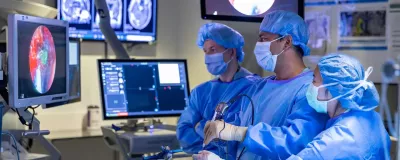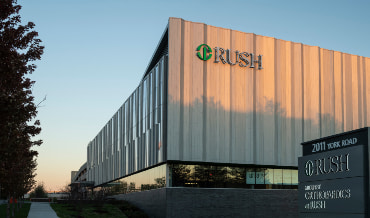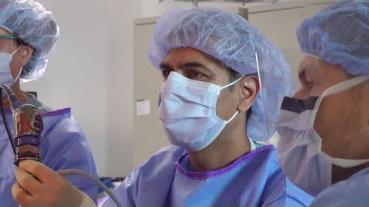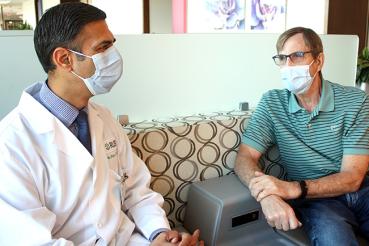The Rush Approach to Skull Base Surgery
Skull base tumors — including pituitary adenoma, sinus cancer, meningioma and acoustic neuroma — are rare. Their proximity to your brain, eyes and major blood vessels adds to the challenge of treatment. Rush's skull base surgery team brings together experts from several specialties, all working together, to provide personalized care and, ultimately, a greater quality of life for you.
You'll have access to the latest advances in technologies and treatments that not only promote safety, but ensure that we can completely remove these difficult tumors. We use intraoperative CT and surgical navigation, which gives us the ability to visualize the tumor in real-time during the procedure.
Skull Base Surgery at Rush

Rush Excellence in Skull Base Surgery
- All the experts working together: Our skull base surgery team has been designated a Multidisciplinary Team of Distinction by the North American Skull Base Society. That means you'll have a team of specialists working together — all with your unique needs at the center of their care. By sharing information, we provide optimal treatment and help manage your appointments. If you need to see more than one specialist, we coordinate care so you can meet with all your doctors the same day.
- Experience that matters: We are among a handful of programs in the U.S. that have extensive experience treating these rare tumors. In fact, only about 5% of U.S. hospitals evaluate and treat as many patients with pituitary and skull base tumors as we do. This expertise allows us to successfully treat even the most complex tumors.
- Improving patient outcomes through research: Our doctors are always looking for ways to help improve your quality of life, and our research leaders continually seek to improve the delivery of care and patient outcomes here and around the globe. We have collectively published more than 300 articles on a wide range of topics related to skull base tumor surgery, including quality of life after surgery.
- Personalized medicine: Our doctors partner with Tempus, a biotechnology company, to gain a better understanding of the genetics of cancerous tumors and which treatment approaches specific tumors will respond to. The genetic analysis provided by Tempus is especially useful for patients who have run out of treatment options, and those with rare cancers, such as skull base tumors and salivary gland cancers.











